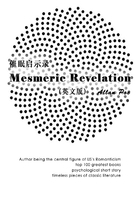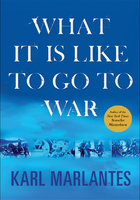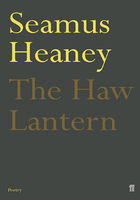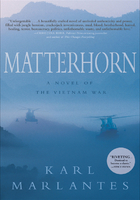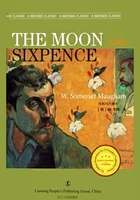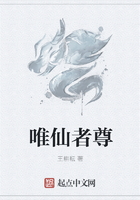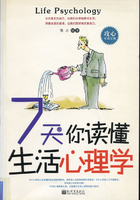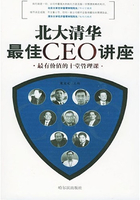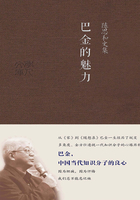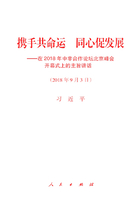It is my aim in these pages to give a full and rounded picture of Churchill's life, both in its personal and political aspects. His career has been the subject of countless books and essays, in which he has sometimes been cavalierly, sometimes harshly, judged. I have sought to give a balanced appraisal, based on his actual thoughts, actions, achievements and beliefs, as opposed to the many misconceptions that exist.
The record of Churchill's life is a particularly full one, for which a vast mass of contemporary material survives. It is therefore possible, for almost every incident in which he was involved, to present his own words and arguments, his thinking, his true intentions, and his precise actions.
My own researches began in October 1962, when I started work as the junior member of Randolph Churchill's research team, a year after he had been asked by his father to undertake the writing of a multi-volume biography, and edition of supporting documents. At the time of his death in 1968, Randolph Churchill had taken his father's story up to the outbreak of war in 1914. I was asked to continue his work. My own final volume, the eighth in the series, ended with Churchill's death at the age of ninety.
The official biography, as it has become known, set out in detail the story of Churchill's life based upon five main sources, each of which I have returned to for this one-volume account; from these sources I have also drawn much new material, particularly for Churchill's earlier years, up to the First World War.
The first of these sources is Churchill's own enormous personal archive of political, Ministerial, literary and personal correspondence, now at Churchill College, Cambridge. This contains private and public correspondence spanning the whole of his ninety years.
The second source is his wife Clementine's papers, including the many hundreds of letters which her husband wrote to her from the time of their marriage in 1908 until his last years. This is under the custody of Churchill's daughter, Lady Soames, and gives a remarkable picture of every aspect of Churchill's personality.
The third source is the Government archive of Churchill's two Premierships, and of his official Ministerial work, which began in December 1905, and continued until his retirement from public life in April 1955. This archive, located at the Public Record Office at Kew, contains all the War Cabinet and Chiefs of Staff discussions for the Second World War, as well as the papers of his eleven Ministries during those years, and of the War Council on which he served in 1914 and 1915.
The fourth source is the private archives, some of them substantial, others fragmentary, of his friends, colleagues and opponents; those who had been in contact with him at different times throughout his life. These materials are to be found in many archives, libraries and private collections, in Britain and abroad. They show how he struck his contemporaries: what they said about him among themselves; how some detested him, and how others, from his earliest years, saw him as a person of exceptional qualities, and as a future Prime Minister.
The fifth source, which I myself built up during thirty years, is the personal recollections of Churchill's family, his friends and his contemporaries. These recollections come from people in all walks of life, among others from the pilots who taught him to fly before the First World War and the officers and men who served with him on the Western Front in 1916. I was fortunate to meet, and to get to know, his literary assistants of the pre-and postwar years, including Maurice Ashley, Sir William Deakin and Denis Kelly; his Private Secretaries, among them Sir Herbert Creedy, who was with him in 1919, and members of his Second World War Private Office, including Sir John Martin, Sir John Peck and Sir John Colville; also Anthony Montague Browne, who was with him from 1953 to 1965.
As Churchill's biographer, I was particularly fortunate to have been able to see him from the perspective of his secretaries, among them Kathleen Hill, who joined him in 1936, Elizabeth Layton and Marian Holmes, who worked with him during the Second World War, and Elizabeth Gilliatt, Lady Onslow, Jane Portal and Doreen Pugh, who were with him in his later years. So much of Churchill's life was spent at Chartwell; Grace Hamblin, who worked there since 1932, has been a guide to those years.
Several million words drawn from these five sources are edited and annotated in the volumes of documents published (and still being published) for each of the volumes of the multi-volume biography.
***
I have set out to provide enough material in this single volume for readers to judge for themselves Churchill's actions and abilities during his remarkably long career. It was a career often marked by controversy and dogged by antagonism; for he was always outspoken and independent, and expressed his views without prevarication, criticising those whom he thought were wrong with a powerful armoury of knowledge, and with vivid, adept and penetrating language.
Churchill's involvement in public life spanned more than fifty years. He had held eight Cabinet posts before he became Prime Minister. When he resigned from his second Premiership in 1955 he had been a Parliamentarian for fifty-five years. The range of his activities and experiences was extraordinary. He received his Army commission during the reign of Queen Victoria, and took part in the cavalry charge at Omdurman. He was closely involved in the early development of aviation, learning to fly before the First World War, and establishing the Royal Naval Air Service. He was closely involved in the inception of the tank. He was a pioneer in the development of anti-aircraft defence, and in the evolution of aerial warfare. He foresaw the building of weapons of mass destruction, and in his last speech to Parliament proposed using the existence of the hydrogen bomb, and its deterrent power, as the basis for world disarmament.
From his early years, Churchill had an uncanny understanding and vision of the future unfolding of events. He had a strong faith in his own ability to contribute to the survival of civilisation, and the improvement of the material well-being of mankind. His military training, and his natural inventiveness, gave him great insight into the nature of war and society. He was also a man whose personal courage, whether on the battlefields of Empire at the turn of the century, on the Western Front in 1916, or in Athens in 1944, was matched with a deep understanding of the horrors of war and the devastation of battle.
Both in his Liberal and Conservative years, Churchill was a radical; a believer in the need for the State to take an active part, both by legislation and finance, in ensuring minimum standards of life, labour and social well-being for all citizens. Among the areas of social reform in which he took a leading part, including drafting substantial legislation, were prison reform, unemployment insurance, State-aided pensions for widows and orphans, a permanent arbitration machinery for labour disputes, State assistance for those in search of employment, shorter hours of work, and improved conditions on the shop and factory floor. He was also an advocate of a National Health Service, of wider access to education, of the taxation of excess profits, and of profit-sharing by employees. In his first public speech, in 1897, three years before he entered Parliament, he looked forward to the day when the labourer would become 'a shareholder in the business in which he worked'.
At times of national stress, Churchill was a persistent advocate of conciliation, even of coalition; he shunned the paths of division and unnecessary confrontation. In international affairs he consistently sought the settlement of the grievances of those who had been defeated, and the building up of meaningful associations for the reconciliation of former enemies. After two world wars he argued in favour of maintaining the strength of the victors in order to redress the grievances of the vanquished, and to preserve peace. It was he who first used the word 'summit' for a meeting of the leaders of the Western and Communist worlds, and did his utmost to set up such meetings to end the dangerous confrontations of the Cold War. Among the agreements that he negotiated, with patience and understanding, were the constitutional settlements in South Africa and Ireland, and the war debt repayment schemes after the First World War.
A perceptive, shrewd commentator on the events taking place around him, Churchill was always an advocate of bold, farsighted courses of action. One of his greatest gifts, seen in several thousand public speeches, as well as heard in his many broadcasts, was his ability to use his exceptional mastery of words, and love of language, to convey detailed arguments and essential truths; to inform, to convince, and to inspire. He was a man of great humour and warmth, of magnanimity; a consistent and life-long liberal in outlook; a man often turned to by successive Prime Ministers for his skill as a conciliator. His dislike of unfairness, of victimisation, and of bullying-whether at home or abroad-was the foundation-stone of much of his thinking.
Churchill's public work touched every aspect of British domestic and foreign policy, from the struggle for social reform before the First World War to the search for a summit conference after the Second. It involved Britain's relations with France, Germany, the United States, and the Soviet Union, each at their most testing time. His finest hour was the leadership of Britain when it was most isolated, most threatened and most weak; when his own courage, determination and belief in democracy became at one with the nation.
Martin Gilbert,
Merton College,
Oxford
23 January 1991

